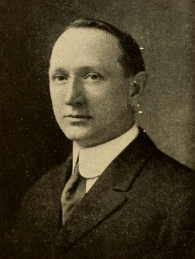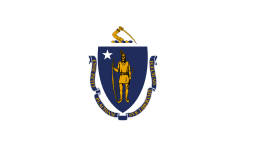Peter Francis Tague
| Peter Francis Tague | |
|---|---|
 | |
| Member of the U.S. House of Representatives from Massachusetts's 10th district | |
|
In office March 4, 1915 – March 3, 1919 | |
| Preceded by | William Francis Murray |
| Succeeded by | John F. Fitzgerald |
|
In office October 23, 1919 – March 3, 1925 | |
| Preceded by | John F. Fitzgerald |
| Succeeded by | John J. Douglass |
| Massachusetts House of Representatives[1] | |
|
In office 1913–1914 | |
| Massachusetts State Senate[1] Second Suffolk District[2] | |
|
In office 1899–1900 | |
| Preceded by | David B. Shaw[3] |
| Succeeded by | David B. Shaw[4] |
| Massachusetts House of Representatives[1] | |
|
In office 1897–1898 | |
| Boston Common Council[1] | |
|
In office 1894–1896 | |
| Personal details | |
| Born |
June 4, 1871 Charlestown, Massachusetts[5] |
| Died |
September 17, 1941 (aged 70) Boston, Massachusetts |
| Resting place | Holy Cross Cemetery, Malden, Massachusetts. |
| Political party | Democratic |
| Spouse(s) | Josephine T. Fitzgerald[5] |
| Alma mater | English High School[1] |
| Occupation | Manufacturing Chemist[1] |
| Religion | Roman Catholic |
| Signature |
|
Peter Francis Tague (June 4, 1871 – September 17, 1941) was a member of the United States House of Representatives from Boston, Massachusetts.
Biography
Tague was a son of Peter and Mary (Shaw) Tague, immigrants from Ireland.[6] His father was a cooper.
Tague attended Frothingham Grammar school and English High School in Boston.[1] He then entered business, supplying blacksmiths and building contractors.
Marriage and family
Tague married Josephine T. Fitzgerald[5] on January 31, 1900; they had two sons.[5]
Business career
Tague was a bookkeeper and Northeast representative of Never Slip Manufacturing Company.[2] He later became a manufacturing chemist[1] and a supplier of chemicals to business.
Political career
Tague became a member of the Boston Common Council in 1894, at the age of just 23. He served for two years, and then was elected a member of the Massachusetts House of Representatives, serving in 1897-1898. The following year he was elected a State senator, serving for two years. He gave up politics for a time to concentrate on his business. He ran again in 1913, winning election to the Massachusetts House of Representatives.
Tague next entered national politics, serving as a Democrat in the Sixty-fourth and Sixty-fifth Congresses (March 4, 1915 – March 3, 1919).
1918 election
In 1918 Tague was faced with a major challenge from former Boston mayor John F. Fitzgerald. Tague lost the primary to Fitzgerald by 50 votes.[7] He contested his loss in the primary and appealed to the election commissioners, but he lost that appeal and Fitzgerald was declared the nominee of the Democratic Party.[8] Tague contested the general election as a sticker and write-in candidate and initially he narrowly lost the general election to Fitzgerald,[8][9] by 238 votes.[10]
Tague contested the election result. After the House of Representatives election committee canvassed over 1,300 votes Fitzgerald's plurality went down to 10 votes. After determining that one-third of the votes in three precincts of Boston's Ward 5 were fraudulent, the committee threw out the votes of those precincts. The committee determined that the election had been tainted by illegal registrations and fraud.[10] They determined that Tague won the election by 525 votes.[10] On October 2, 1919, by a vote of 5 to 2, the committee voted to unseat Fitzgerald and to seat Tague.[11]
On October 23, 1919 the full House of Representatives unseated Fitzgerald and seated Tague.[12]
1917 Boston mayoral election
Tague was an unsuccessful candidate for mayor of Boston in 1917, but was reelected to the Sixty-seventh and Sixty-eighth Congresses, serving from October 23, 1919, to March 3, 1925. He was defeated for reelection in 1924.
Tague is noted for having introduced a bill in Congress in 1921 to investigate the KKK, which then was becoming a powerful force nationwide.
Later years
Following his defeat for Congress in 1924, Tague resumed his business career. He was appointed assessor of Boston in 1930 and chairman of the election commission of Boston the same year. In 1936, he was appointed postmaster and served until his death.
Tague died in Boston on September 17, 1941, at the age of 70. He was interred in Holy Cross Cemetery, Malden, Massachusetts.
References
- 1 2 3 4 5 6 7 8 Who's who in State Politics, 1916, Boston, MA: Practical Politics, 1916, p. 30.
- 1 2 Bridgman, Arthur Milnor (1900), A Souvenir of Massachusetts legislators, Vol. IX, Stoughton, MA: A. M. Bridgman, p. 140.
- ↑ Bridgman, Arthur Milnor (1898), A Souvenir of Massachusetts legislators, Vol. VII, Stoughton, MA: A. M. Bridgman, p. 118.
- ↑ Bridgman, Arthur Milnor (1901), A Souvenir of Massachusetts legislators, Vol. X, Stoughton, MA: A. M. Bridgman, p. 140.
- 1 2 3 4 Hess, Elmer C. (December 1922), Official Congressional Directory, First ed, Washington, DC: Joint Committee on Printing, p. 47.
- ↑ US Census, 1880, Boston, Suffolk Co., Mass., page 465B
- ↑ "Tague Charges Frauds in Ward 5 Election Board, After Stormy Day, Orders New Hearing This Morning HOW FITZGERALD'S LEAD WAS CUT TO 50", Boston Daily Globe, Boston, MA: The Boston Globe, p. 9., Oct 1, 1918
- 1 2 Walsh Won by 18,908. Election of Senator only Democratic Gain in Massachusetts, New York, NY: New York Times, Nov 7, 1918, p. 5.
- ↑ "Walsh Won by 18,908. Election of Senator only Democratic Gain in Massachusetts", Boston Daily Globe, Boston, MA: The Boston Globe, p. 5., Nov 1, 1918
- 1 2 3 WANTS FITZGERALD OUSTED; House Committee Charges Fraud-- Finds Tague Was Elected, New York, NY: New York Times, October 14, 1919, p. 10.
- ↑ WOULD UNSEAT FITZGERALD; House Elections Committee Upholds Tague of Boston by 5 to 2, New York, NY: New York Times, October 3, 1919, p. 6.
- ↑ "FITZGERALD IS UNSEATED IN HOUSE House Refuses to Order New Election--Tague Gets Place", Boston Daily Globe, Hartford, CT: The Hartford Courant, p. 10., Oct 24, 1919
External links
- United States Congress. "Peter Francis Tague (id: T000014)". Biographical Directory of the United States Congress.
- Find-A-Grave biography
| United States House of Representatives | ||
|---|---|---|
| Preceded by William F. Murray |
Member of the U.S. House of Representatives from Massachusetts's 10th congressional district March 4, 1915 – March 3, 1919 |
Succeeded by John F. Fitzgerald |
| Preceded by John F. Fitzgerald |
Member of the U.S. House of Representatives from Massachusetts's 10th congressional district October 23, 1919 - March 3, 1925 |
Succeeded by John J. Douglass |

